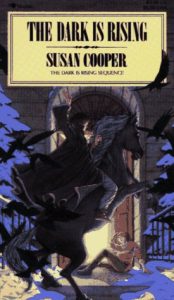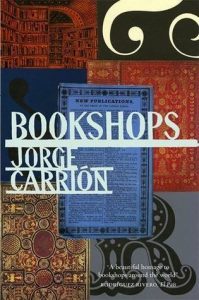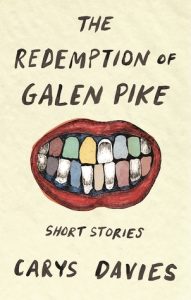When I last wrote about what I was reading for the pandemic, it was all about preparation — what was essential to know as battened down the hatches. Now it’s been almost two months since my last dine-in meal and we’re as suspended in time as most. Finding a copy of The Sound of Waves by Yukio Mishima (which I have not yet read) at our Little Free Library made me realize that my reading had, necessarily, shifted of late, too. So today I’ll share with you the books that bring me comfort and a thought or two about why reading can feel so hard right now.
Garden by the Sea by Mercè Rodoreda
 I confess that my reading of Garden by the Sea by Mercè Rodoreda was broken. I picked it up night after night and would read a few pages before falling asleep with it open and the lamp on. But it wasn’t the book’s fault and in some ways this was the perfect book to read in this way. (In my reading anyway) not a lot happens in the first half of the book.
I confess that my reading of Garden by the Sea by Mercè Rodoreda was broken. I picked it up night after night and would read a few pages before falling asleep with it open and the lamp on. But it wasn’t the book’s fault and in some ways this was the perfect book to read in this way. (In my reading anyway) not a lot happens in the first half of the book.
The narrator is the gardener of a marvelous villa by the sea in 1920s Spain. He shares stories of what’s going on in the big house during the summers, but the story I connected with right now was his life of sitting in a cottage watching that life happen. His residence and employment continued as the property changed hands, as the seasons changed, and as lives were made and ruined nearby. This observer narrator feels less involved in the main drama than Nick Carraway was in The Great Gatsby and I very much connected with the feeling of daily maintenance that was reinforced by Rodoreda’s choice to describe the plants and the care thereof. As though this world will continue on, with minor changes, no matter what happens through the window. It doesn’t hurt that Rodoreda’s writing is gorgeous enough that I felt wrapped in a dream (even when I was still awake).
It helps that we’re investing a lot in our garden right now. Or maybe investing in our garden helps a lot right now. I’ve ripped all the grass out of our front yard and populated it with the few plants that I could order and my first careful reconfiguring of plants we already had. We also planted our veggies early and added a new bed for more. Not only is this all a place to put my angst, it’s also something for the future that I actually have control over.
Now by Antoinette Portis
 Now is one of the books my son pulls from his shelves when he knows I’m upset and could use a calm down. Beautifully illustrated, this book walks through moments of a young girl’s life. I bought it so he could learn (gently) about mindfulness. Clearly I need it as much for myself. Still, this book is an excellent reminder (for readers of all ages) about appreciating the moments we’re in. At the end of the book, the narrator says “and this is my favorite now, because it’s the one I’m sharing with you” and shows the girl being read to by her mother (at which point my son always gets an extra big hug).
Now is one of the books my son pulls from his shelves when he knows I’m upset and could use a calm down. Beautifully illustrated, this book walks through moments of a young girl’s life. I bought it so he could learn (gently) about mindfulness. Clearly I need it as much for myself. Still, this book is an excellent reminder (for readers of all ages) about appreciating the moments we’re in. At the end of the book, the narrator says “and this is my favorite now, because it’s the one I’m sharing with you” and shows the girl being read to by her mother (at which point my son always gets an extra big hug).
This week I started writing moments in our wall calendar. I needed some reminder that there was purpose to each day and that time is, indeed, passing. Some days are little (we planted seeds yesterday) and some are big (we finished building those new garden beds on Sunday), but these few daily words feel meaningful enough that I plan to go back through my Twitter and phone reel and fill in all the days since March 13.
Also, I’m trying to appreciate things more as they happen and to make magic in simple ways. It’s been a trying week for the whole family, emotionally, but slowing down and looking has helped. One day I lay face down on our grass and watched ants take food back to their hills (did you know they eat dandelion seeds?). Later that night I watched the dust settle in the beam of my son’s lamp as he picked out books. All of these gentle moments helped me reset a little and find the pleasures of now. Best of all, last night I finally traipsed out to get lilacs for my bedside (they’re great for wilding up your dreams). It was late, I was barefoot, and our back porch light was off. My husband came with me and there was definitely magic in realizing how much we could see in the dark and in spotting the big dipper overhead on a balmy night.
Why Reading Feels Impossible
I wish I could recommend to you old favorites like An Atlas of Impossible Longing about feeling angsty or out of place, but even pulling those books from my shelf feels exhausting right now. This came up on a family Zoom call recently—one of those discussions with people you love who are backgrounded by walls full of books you know they’ve actually read—except the conversation was about why we aren’t reading, or why reading feels so hard. For me it’s about empathy.
While reading can be a wonderful escape into another world, reading well and fully also requires us to empathize with the characters, and I don’t know about you, but I don’t have empathy to spare right now. I’m spending all the love and care I can muster on those in my household (trying to reserve some for myself). I’m reaching out to friends I might not otherwise be on schedule to connect with. I’m weeping for strangers in newspapers or on Twitter. And at work I’m trying to think about what our audience needs so I can help them. None of this leaves much room for the fictional characters with whom I usually keep company. So much for the stacks of books that I keep ordering. I guess there will be time for those later.
Are you reading now? If so, what brings you comfort? I could use a few good recommendations before I move on to the “returning to outside life” stage of this pandemic.
Normally at this point I ask you to buy books from indies (yes, please, when you can), but right now the investment I’m making in the literary future involves donating (my money and time) to Seattle City of Literature to help keep our culture vibrant. Please join me in donating, if you can.
 Phillip Lopate
Phillip Lopate  When I saw on Twitter that Robert Macfarlane had proposed a book group where we all start reading The Dark is Rising by Susan Cooper on Midwinter’s Eve (the day the book starts) and share our experiences under the hashtag
When I saw on Twitter that Robert Macfarlane had proposed a book group where we all start reading The Dark is Rising by Susan Cooper on Midwinter’s Eve (the day the book starts) and share our experiences under the hashtag  I opened my review copy of Bookshops: A Reader’s History by Jorge Carrión the week I was to finally visit the famed City Lights Books in San Francisco for
I opened my review copy of Bookshops: A Reader’s History by Jorge Carrión the week I was to finally visit the famed City Lights Books in San Francisco for  Wicked little books. They’re all I read these days when on a good night I can manage 20 pages and most nights I can’t even remember any of what I read the night before. By wicked little, I mean very short, except in the case of The Redemption of Galen Pike by Carys Davies which is short, but it is also wicked in the most delicious of ways. The stories are compact enough that I could read a few each night if I wanted to, but, more importantly, they are dincredibly well drawn which made them oh-so-memorable. Perfect for a newish mom with a dark sense of humor and an interest in the baser side of human consciousness.
Wicked little books. They’re all I read these days when on a good night I can manage 20 pages and most nights I can’t even remember any of what I read the night before. By wicked little, I mean very short, except in the case of The Redemption of Galen Pike by Carys Davies which is short, but it is also wicked in the most delicious of ways. The stories are compact enough that I could read a few each night if I wanted to, but, more importantly, they are dincredibly well drawn which made them oh-so-memorable. Perfect for a newish mom with a dark sense of humor and an interest in the baser side of human consciousness.